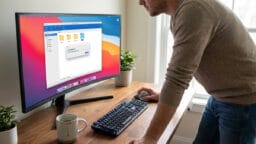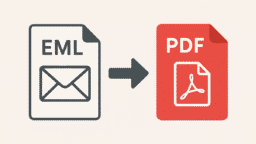Have you ever wondered about the importance of mobile apps in the healthcare industry? The variety of types is staggering. The market is growing rapidly. Investments from vendors and national governments. Why the app market is only growing in 2021.
In today’s world, technology is no longer something distant and expensive. Instead, it is becoming more human, if not personal. That is true for both the sector of technological gadgets and the software provided for them. Humanity has long since moved many aspects of its life online, along with this, we have entrusted the care for our health to the technologies of the future as well.
The development of technology, the variety of gadgets leads to an increase in demand, and thus to the creation of long-needed services, including health care.
Mobile App Statistics in Medicine
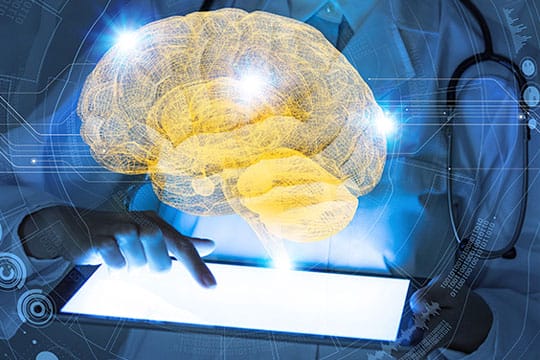
Currently, the global market already has a separate concept of mHealth, which is used when it comes to any mobile technology in the field of medicine and healthcare. The original push for this sector was the diabetes app. The market and investment turnover is growing by a third every year because there are many parties interested in it. Health care providers, health care institutions, investors and venture capitalists, equipment manufacturers, and technology companies are all making big contributions to the field.
During the pandemic, app usage grew 40%, reaching 200 billion hours in 2020. The development of apps for the health sector will not stop at this point.
Recommended for you: Privacy, Security & Health Risks of Social Media & How to Prevent Those.
Types of Medical Apps

The rapid advancement of technologies in most cases exceeds the expectations of users, and the free access to them forces people to spend a lot of time searching for more and more opportunities. This market is vast and endless. What types of mobile healthcare apps are there, and why are they so important?
1. For Sports and Health

The hectic pace of life forces users to seek ways to facilitate or speed up the process of exercising. Instead of spending time and money on a personal trainer and gyms, it is easier for users to download an app for their favorite sport. And if one does not like it, it is easy to remove it from the smartphone and find a new one. The high competition allows it.
Personal trainers, fitness trackers, calorie calculators, diets, sugar level monitors, blood pressure, and even oxygen saturation – all of these have long been available in your pocket. Almost all of these apps are free but may offer advanced features for purchase, subscription, or viewing ads.
In addition to body enhancement and health, stress relief and meditation apps are available on the market. Thanks to mobile app development, you can now quit smoking, remember to drink water, and track your sleep patterns and phases.
2. For Beauty

As we’ve already mentioned, mobile health apps are designed to make the user’s life better. In the field of beauty, there are also a lot of useful features. For example, apps for body care spas, facelifts, and even cosmetic product selection.
3. For medical institutions and doctors

The IT industry is developing in every direction, and healthcare applications can be used not only by the average consumer but also by healthcare professionals and medical institutions themselves. Many of these apps have practical use, such as doctor’s appointments.
Most countries have adopted medical reform on the state level and incorporated elements of technology into it. Thus, it is now possible to schedule an appointment at a state health center by using a mobile app.
The official app allows you to get a consultation with a specialist on any issue that does not require additional examinations and diagnostics. You can choose a doctor yourself, find information about this doctor, pay for medical services and even keep your medical history in the app.
Among the advantages of such software applications is the convenience for both parties and keeping an electronic record of all visits, referrals, and doctor’s appointments. Also, the electronic format eliminates any possibility of corruption.
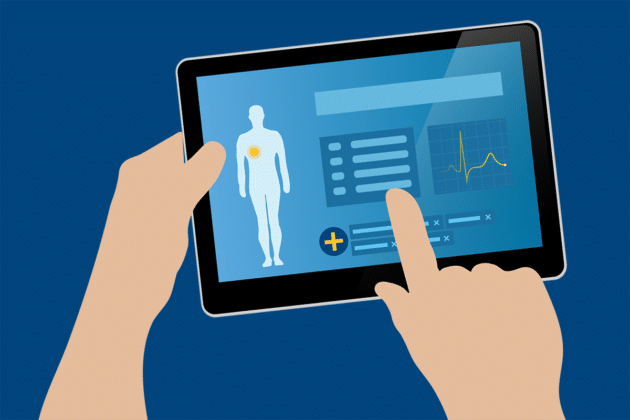
4. For corona tracking

Tracking applications use a method of digital monitoring of an individual and his or her contacts over a period of time. The main drawback so far is the privacy issues of user data.
Despite all the complexities associated with legal regulations and the general acceptance of people, disease-related mobile tracking apps are becoming increasingly popular among users. Partially the popularity is growing because of voluntary use, partially because of the necessity associated with border crossing regulations. Nevertheless, 2020-2021 have been the dawning years for monitoring apps. They are receiving large investments, grants, and official support from national governments, and overall their outlook is quite bright.
5. For telemedicine

The concept of telemedicine overlaps slightly with many states’ applications in the health care system. However, while the former is aimed at getting an online appointment with a doctor and not having to wait in line, the latter allows you to just get a consultation without coming to the clinic.
This format is being adopted by private clinics to increase their reach to clients. They are shifting their services online. Previously, they did it through Skype or Zoom, but now, to avoid confusion, and to unite all their services into a single whole, medical centers are creating their own mobile healthcare apps. They are thus moving all of their functions, which do not require physical contact, closer to the patient.
This cohort includes both real clinics with years of experience in medical practice, as well as institutions or individual specialists whose profile is non-traditional medical practice. However, you should understand that you cannot rely entirely on mobile apps if you need help from real doctors and your health is at risk. No online diagnosis can be confirmed without specialized diagnostic tests. Your health should be taken responsibly.
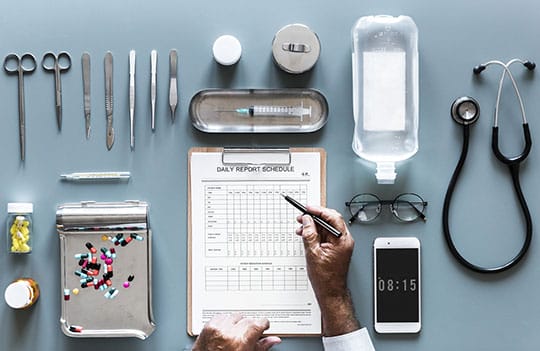
6. Pharmacist Friendly Apps

In addition to health services, there are many apps to help pharmacists. They are used by students and practitioners as well. These apps carry a voluminous amount of information about medical drugs and everything that can relate to their use. Still, it is much more convenient and faster than searching for a rare term in huge medical reference books, which is also difficult to carry with you on a regular basis, for example, to work.
You may like: Top 10 Healthcare Technology Innovations We Have Witnessed!
Private and Public Medical Apps Available

Public apps improve service, reduce time spent in lines, make it easier to keep statistics and doctors’ appointments, and users can track their own visit histories.
For private clinics, apps can be a step toward rebranding, increasing status among competitors, more engagement with patients, and an overall increase in recognition and profits.
Who Benefits from the Healthcare Apps

Users:
- People with disabilities.
- People who are in a remote area where there is no hospital or clinic in a nearby location and the issue is urgent.
- Folk who are concerned about their health and shape.
- People who need to constantly monitor their condition, such as those with diabetes, blood pressure, or insomnia.
- Athletes, etc.
Beneficiaries:
- App developers.
- Governmental institutions.
- Investors.
- Ventures.
- Technology manufacturers.
Pros of Using Mobile Healthcare Apps

- Elimination of the corrupt element in public health clinics.
- Reducing the cost of medical care.
- Faster process of service.
- Keeping all the records of appointments and prescriptions.
- Possibility for the patient to control his/her records.
- Increased client coverage for private clinics and specialists.
- Smooth financial communication.
- Customer focus.
- Ability to provide feedback, validation, and performance reviews.
- Access to discounts and promotions, personalized offers.
Top Mobile Healthcare Apps

Fitness apps are by far the most popular apps for downloading and using. There are various pacemakers on smartphones and smartwatches, as well as applications such as MyFitnessPal. It combines the functions of many other healthcare apps. Here you can count calories, pick a diet, and get a set of exercises of varying levels of difficulty.
In the mental health sector, some of the most popular apps are Headspace and Happify. They provide a variety of meditations, tasks to overcome stress and generally try to set a positive mood.
In the area of nutrition, the one with the biggest number of downloads is the app Noom. Here, the user is offered short- and long-term plans for proper nutrition, recipes, and options for healthy snacks.
In other areas of health, the top apps differ depending on geolocation, as they are more state-centered.
You may also like: How AI is Re-Shaping Healthcare Industry in the Corona Times?
Conclusions

Although the market for mobile apps and software in the medical and healthcare sector is still developing, its ambitions are great. The number of interested users and vendors is growing steadily and is not even trying to fall. Since 2019, as the coronavirus pandemic has spread globally, government agencies across every continent have also become interested in the development of mobile healthcare apps.
From expensive toys, smartphones have long ago turned into assistants in everyday tasks, there is no obstacle to their becoming useful for the work of doctors, pharmacists, and other representatives of medicine as well.
This article is written by Louis Sawyer. Louis is a professional writer, editor, and web design expert. She loves writing about technology trends, web development, mobile games, and business issues. Also, Louis works as a proofreader at Computools. Follow Louis on Twitter.
